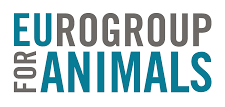
The impetus for the EU to develop and adopt the Farm to Fork strategy was the necessity of making the food system resilient, by adopting healthier and more environmentally sustainable practices, including improved animal welfare and a shift to healthy, sustainable diets within planetary boundaries. The Commission’s communication on Safeguarding food security and reinforcing the resilience of food systems confirms this “necessity of a fundamental reorientation of EU agriculture and EU food systems towards sustainability, in line with the Green Deal”.
The crisis in Ukraine is having a destabilising effect on food markets in Europe and around the world. Yet, food supply is not at risk in the EU. The Commission confirms in its Communication that the EU is largely self-sufficient for key agricultural products.
The EU is, on the other hand, reliant on imports for certain specific agricultural products, mainly protein feed. Moreover, price hikes on the back of the disruption in global supply chains can result in higher food prices that could lead to food insecurity for vulnerable Europeans.
Protect access to food for vulnerable Europeans in the short-term, make the food system more resilient by rolling-out the Farm to Fork Strategy in the long-term
Short-term measures taken by the EU and the Member States must ensure that vulnerable groups and low-income households can access and afford sufficient quality and nutritious food. Long-term, the EU must make its food system more resilient by fully rolling out the Farm to Fork strategy that was drafted with long-term food security in mind.
The Commission highlights that without the transition set out in the Farm to Fork and Biodiversity Strategies, food security will be severely at risk in the long-term. The EU can become less permeable to volatility and constraints in international markets by moving away from the most industrial and intensive forms of animal agriculture and promoting a shift to more plant-based diets. More people can be fed using less land and resources.
The crisis affects feed, not food
Access to cheap feed for animals and chemicals for intensive feed-crops is under stress because of the war. The Farm to Fork strategy aims at avoiding that intensive animal farming and its supply chains come into competition with food for people.
The EU produces over 290 million tonnes of cereals a year, 32 million more tonnes than are used domestically. Yet only 20% goes directly to feed people. The lion’s share is for feed (56%) and almost as much cereal is exported (45 million tonnes) than is destined as food for Europeans.
A resilient food system to weather this and future crises
A resilient food system will ensure that domestically produced food-crop is primarily used as food for people, with farm animals feeding themselves principally by grazing. Agricultural production is, currently, mostly diverted to intensive animal farming. Apart from its detrimental impact on billions of animals it sustains an - economically and medically - unhealthy overconsumption of animal products and the EU’s reliance on imported feed.
The Commission, therefore, confirms the necessity of a fundamental reorientation of EU agriculture and EU food systems towards sustainability, in line with the Green Deal. The EU’s objectives of moving towards a greater plant-based diet, reducing the consumption of red meat and improving the well-being of farmed animals will help the EU weather international crises like the deplorable war unfolding at its borders. Overall, the consumption of animal products would need to be reduced by around 70% in the EU in order to stay within the planetary boundaries.
With the war in Ukraine bringing the limits of the EU’s food system, heavy in animal protein, to light, the Commission and Member States must accelerate the roll-out of the Farm to Fork strategy: reduce the EU’s reliance on meat production that diverts home-grown food crops for people to feed for animals and requires significant imports of both feed-crop and fertilisers.
Sources
- Eurogroup for Animals
Posted on 2022-03-25 10:51








Comments